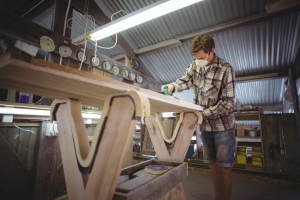Industries are changing fast, and two areas that are seeing exciting overlap are healthcare and education. It makes sense, right? Health and learning go hand in hand, especially as technology and societal needs evolve. What's amazing is how these two fields are combining to create some truly unique career paths that didn't even exist a decade ago. If you're looking for a career that's both meaningful and dynamic, this might just be your calling.
Let's dive into what's happening and explore some of the coolest opportunities waiting for you.
Why Healthcare and Education Are Teaming Up
Let's face it—both healthcare and education are all about helping people, right? Healthcare focuses on keeping people well, and education equips them with the knowledge to stay that way. Combine the two, and you get roles that are not only in demand but also incredibly impactful.
Thanks to tech advancements, this collaboration is growing faster than ever. Think online training for nurses or using virtual reality to teach surgical techniques. Cool, right? These careers aren't just about keeping up with trends—they're about shaping the future.
The Skills That Matter
Before we dive into the actual career paths, let's talk about the skills you'll need. You don't have to be a jack-of-all-trades, but having a mix of these will definitely help:
- Clinical Expertise
At the heart of any healthcare role is a strong grasp of clinical knowledge. Whether you're educating patients, training future professionals, or analyzing health data, understanding the medical side of things is non-negotiable. This doesn't just mean memorizing facts—it's about applying your knowledge to solve real-world problems and improve outcomes.
- Teaching Ability
Let's face it, healthcare concepts can get complicated. That's where teaching skills come in. The ability to break down complex topics into simple, digestible pieces is invaluable, whether you're teaching a class of nursing students or explaining a new treatment plan to patients. Patience and good communication skills are your best friends here. If you can make tough subjects relatable, you're golden.
- Tech-Savviness
Technology is the backbone of innovation in healthcare and education. From virtual reality simulations to AI-driven health tools, the ability to navigate these technologies is crucial. It's not just about knowing how to use Zoom or learning management systems—it's also about staying curious and open to emerging tools. Being comfortable with tech can set you apart and keep you ahead of the curve.
- Adaptability
These fields don't sit still for long. New treatments, regulations, and technologies pop up constantly. Adaptability isn't just a nice-to-have—it's a must. Whether you're pivoting to a new training format, adjusting to changes in healthcare protocols, or learning a new software program, being flexible and ready to roll with the punches will help you thrive.
Careers That Blend Healthcare and Education
So, what are these innovative roles? Here are some of the most exciting ones making waves right now:
Clinical Educators and Trainers
Imagine being the person who teaches healthcare workers how to use the latest equipment or adopt new procedures. Clinical educators do just that. They work in hospitals, schools, and even corporate settings to ensure healthcare professionals are always at the top of their game.
Accelerated Nursing Pathways and ABSN Graduates
Here's where things get even more interesting. Accelerated Bachelor of Science in Nursing (ABSN - Accelerated BSN) programs are fast-tracking people into nursing careers. But ABSN grads aren't limited to hospital floors—they're also becoming community health educators, leaders in healthcare organizations, and specialists in areas that blend nursing with teaching. If you're considering a career switch, this could be your ticket.
Health Informatics Specialists with a Teaching Twist
Data is everywhere, and in healthcare, it's a game-changer. Health informatics specialists analyze data to improve healthcare services, but when you add an education component, they're also creating training programs to teach others how to use this information effectively.
Patient Education Specialists
You've probably seen pamphlets explaining how to manage diabetes or videos about physical therapy exercises. Someone has to create those resources. Patient education specialists bridge the gap between medical professionals and the public, helping patients understand their health better.
School-Based Healthcare Coordinators
Kids spend most of their time at school, making it the perfect place to focus on their well-being. These coordinators bring healthcare services into schools, ensuring students stay physically and mentally healthy while juggling their studies.
How Tech Is Changing the Game
It's no exaggeration to say that technology is the driving force behind the incredible changes in healthcare and education. These fields are no longer just about face-to-face interactions or static textbooks. Instead, they're evolving into dynamic, tech-powered systems that make learning and care delivery more effective, efficient, and accessible.
Virtual Reality (VR) for Immersive Learning
Virtual reality isn't just for gamers anymore—it's transforming how we train healthcare professionals. Imagine a nursing student walking through a simulated hospital, practicing procedures like inserting IVs or handling emergency situations without the real-world pressure. This tech offers a safe environment to make mistakes and learn from them, preparing students for real-life scenarios in ways traditional methods never could.
Telemedicine: Connecting Patients and Providers
Telemedicine platforms have redefined what “seeing a doctor” means. These tools aren't just for patient care—they're also valuable for education. Providers can remotely mentor students during live consultations, and patients can learn how to manage their conditions through virtual health coaching sessions. The convenience and accessibility of telemedicine make it a game-changer for underserved communities and busy professionals alike.
AI Tools: Personalizing Learning and Care
Artificial intelligence is making waves across the board. In education, AI-powered tools can analyze a student's performance and tailor lessons to their learning style. In healthcare, it can predict patient outcomes and recommend personalized treatment plans. Combine these capabilities, and you've got a powerful ally in training healthcare workers more effectively and delivering care that's truly patient-centered.
E-Learning Platforms: Breaking Barriers
Gone are the days when location determined access to education. With e-learning platforms, aspiring healthcare professionals can take courses from anywhere in the world. Whether it's a live webinar or an interactive module, these tools make it easier for students to balance their studies with other responsibilities. They're especially beneficial for accelerated programs like the ABSN, which demand flexibility without compromising quality.
Wearable Tech and Apps
Even wearables like fitness trackers and health monitoring apps are playing a role. Educators use these tools to teach patients how to track their own health metrics, while students learn to interpret data from these devices. The result? A more informed and engaged patient population and healthcare workers who are tech-savvy from day one.
Technology isn't just enhancing healthcare and education—it's bridging the gap between them. By embracing these innovations, we're creating a future where learning and care delivery are faster, smarter, and more inclusive.
Final Thoughts
At the end of the day, careers at the intersection of healthcare and education offer more than just a paycheck. They let you make a real difference, whether it's helping patients understand their health, training the next generation of healthcare workers, or improving systems that benefit entire communities.
If you're ready to explore something new, why not dive into a career that blends these two fields?






